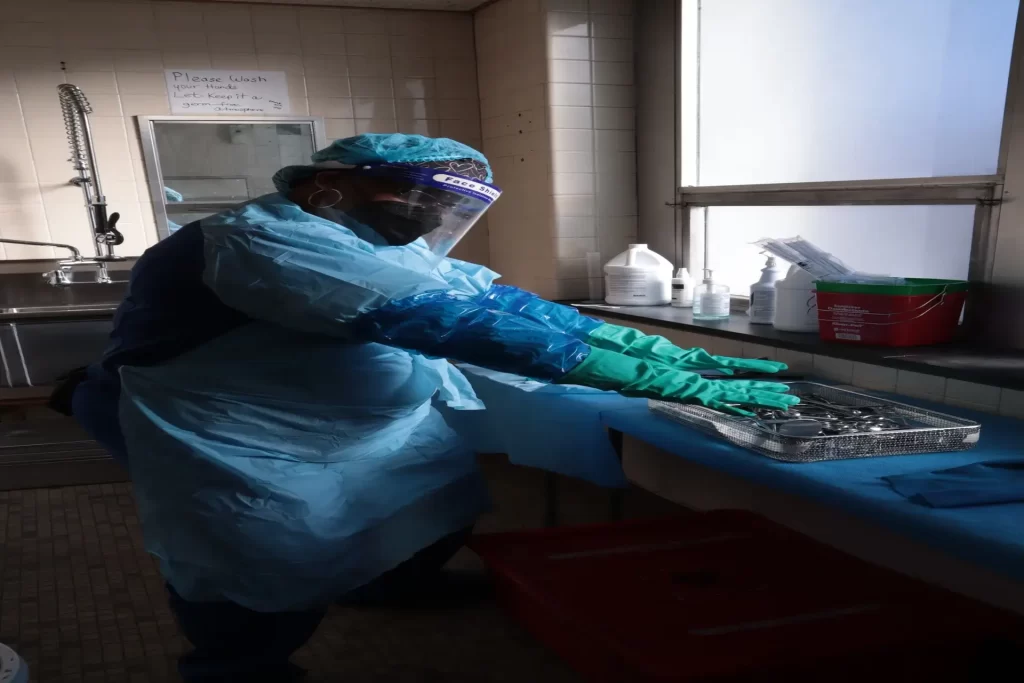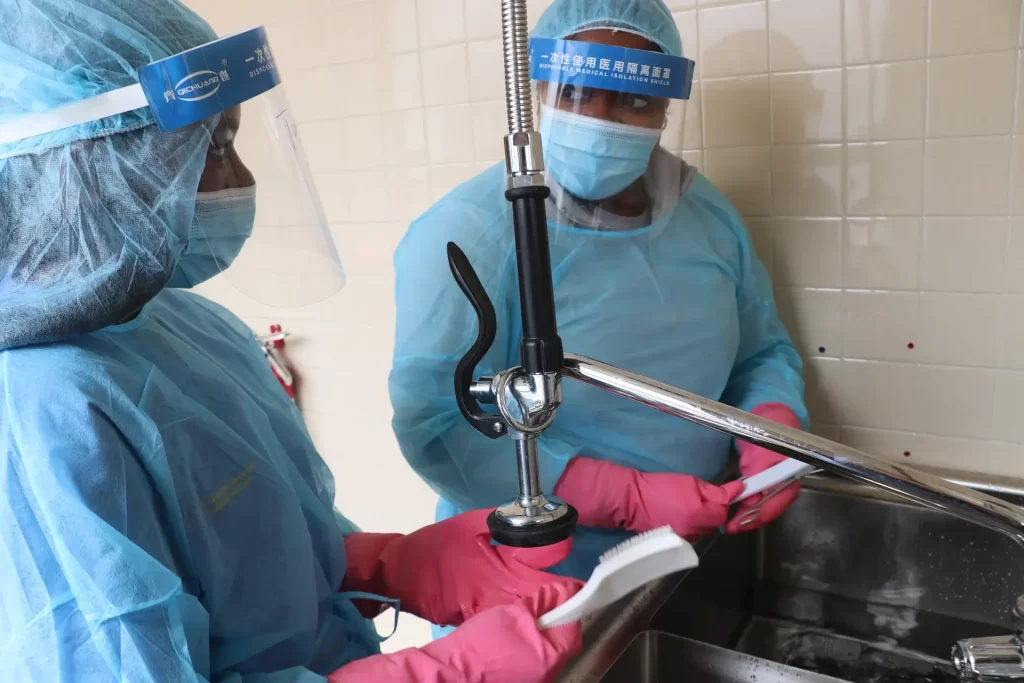Sterile processing professionals are critical to the healthcare industry, as they ensure that medical instruments, equipment, and supplies are free from pathogens and safe for patient use. With the increasing focus on patient safety and infection control in healthcare settings, the demand for sterile processing professionals has been growing steadily. Let’s will look at the reasons behind the growing demand for sterile processing professionals in the healthcare industry.
One of the primary reasons for the growing demand for sterile techs is the overall growth of the healthcare industry. As the population ages and advances in medical technology are made, the need for healthcare services is increasing. More patients require medical care, translating into higher demand for sterile processing professionals to ensure that medical instruments and equipment are adequately sterilized and ready for use.
Patient safety is a top priority in healthcare. The growing awareness of the risks of healthcare-associated infections (HAIs) has led to an increased focus on infection prevention and control. Sterile technicians in sterile processing jobs play a vital role in preventing HAIs by ensuring that medical equipment and instruments are properly sterilized and packaged. Thus, there is a growing demand for skilled sterile processing technicians to ensure that medical equipment is safe and contamination-free.
There has been a rise in the focus on infection control in healthcare settings in sterile processing program. The emergence of antibiotic-resistant bacteria and other infectious diseases has made it more critical than ever to maintain a sterile environment in hospitals and other healthcare facilities. Sterile processing professionals play a critical role in preventing the spread of infections by ensuring that medical instruments and equipment are adequately sterilized and free from pathogens.
Regulatory agencies such as the CMS and the Joint Commission have established guidelines for the sterilization of medical instruments and equipment. These guidelines require healthcare facilities to have trained sterile processing professionals on staff and to maintain appropriate procedures for sterilization. As a result, healthcare facilities must hire and retain qualified sterile processing professionals to comply with these regulations.
Medical instruments and equipment are becoming increasingly complex, constantly developing new technologies. As a result, the sterilization process for these instruments and equipment is also becoming more complex. Therefore, sterile processing professionals must stay up-to-date with the latest techniques to ensure that medical devices and equipment are properly sterilized and safe for patient use.

There is a lack of experts in the industry despite the rise in demand for sterile processing specialists. There aren’t enough qualified sterile processing specialists on the market right now, claims the International Association of Healthcare Central Service Materiel Management (IAHCSMM), to satisfy the demands of the healthcare sector. Furthermore, as the demand for healthcare services rises and more sterile processing professionals retire, this shortage is predicted to persist.
Medical technology has advanced significantly in recent years, and many of these developments need specialized training and skills to maintain and clean. It takes specialized training and experience for sterile processors to ensure that medical devices and equipment are correctly cleaned, disinfected, and sterilized.
Sterile processing technologists are among the specialized personnel in limited supply in the healthcare sector. Numerous causes, such as an aging workforce, poor pay, and a shortage of options for training and education, contribute to this shortfall. As a result, sterile processing technologists are in high demand, and healthcare organizations are having trouble filling positions with suitable candidates.
There are several prospects for professional progression in the sterile processing industry. Professionals in sterile processing can advance up the corporate ladder to become managers, instructors, and supervisors. They can also specialize in particular sterile processing processes, such as sterilizing surgical instruments or reprocessing endoscopes. The area of sterile processing is appealing to anyone searching for long-term career growth and security because of these professional progression chances.

The general population is recognizing the significance of sterile processing in healthcare settings. As a result, the crucial role played by specialists in sterile processing in upholding a sterile environment and halting the spread of pathogens is becoming increasingly understood. Because healthcare facilities want to ensure they have enough staff to maintain a sterile environment and comply with regulatory requirements, there is an increase in demand for sterile processing professionals due to this increased awareness.
Due to several factors, including an increased emphasis on patient safety, a growing healthcare industry, more stringent regulations, improvements in medical technology, increased public awareness of the value of sterile processing technicians, and a shortage of skilled healthcare workers, there is an increasing need for sterile processing technicians in the healthcare sector. Sterile processing technologists will likely be in more demand as healthcare develops and expands, opening up a viable career path for individuals with a passion for the field.
Read More